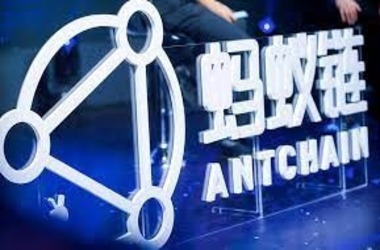
Web3 refers to a next-generation Internet built on blockchain technology that is more trustworthy than the existing system (Web 2.0). Web3’s cross-chain technology is crucial to its success as it allows for the creation of a unified and welcoming environment. At the conference, the Institute of Electrical and Electronics Engineers (IEEE) introduced the first international standard for cross-chain technology, and the source codes for AntChain Bridge, a high-security heterogeneous cross-chain protocol, were released to the developer community. For the first time, AntChain’s core technologies are available to the public.
Cross-chain technology allows for the transfer of value across different blockchains. The new standard establishes a common communication protocol and drastically decreases the cost of linking blockchains, according to Li Ming, head of the IEEE Computer Society Blockchain and Distributed Ledger Technology Standards Committee.
The full promise of Web3 cannot be realized without cross-chain technologies. According to Yan Ying, AntChain’s Technical Director, “by connecting different blockchains and use cases across industries with the technology, we will create a more interconnected and open ecosystem that enables large-scale transfers of digital assets.” “After years of investigation, we are thrilled to make available to the Web3 community, through this open-source project, our cross-chain technology and technical experience. We expect this to help the Web3 community expand and make the technology more widely available.
This year, AntChain introduced its cross-chain solution, ODATS (Open Data Access Trusted Service). Over the course of the last several years, ODATS has been developed and verified for usage in a wide variety of contexts, including the financial services and logistics industries. AntChain also announced the launch of AntChain OpenLab during the conference, which would work in tandem with Web3 researchers and developers to study blockchain protocols, security and compliance, private-preserving computing, and trusted hardware solutions. AntChain OpenLab’s goal is to help foster a more open, safe, and productive Web3 technological environment.
The Web3 OpenChain development platform, services, and toolkits have been jointly introduced by a number of node operators. These operators include Shanghai Data Exchange, Zhejiang Cultural Industry Investment Group, and AntChain. In 2020, AntChain OpenChain will be upgraded to Web3 OpenChain, which will provide similar full-stack technological services for Web3 development and compatibility with other important protocols like as Ethereum.
Digital Technologies Business president of Ant Group Geoff Jiang said, “Industrial Web3 and value network are the cornerstones of the Internet of the future. Internationally standardized cross-chain technology will allow for the linking of different blockchains, speeding up the shift from an information network to a value network and bolstering the expansion of the digital economy.
China Unicom Digital Technology (CUDT) and UNISOC worked with AntChain to create a reliable baseband processor for the EV sector, in addition to their participation in Web3 projects. This innovative chip combines the experience of AntChain in blockchain and IoT technologies with UNISOC’s highly integrated baseband chip design to provide a safe hardware connection between external data and blockchain settings. Over 200 Independent Software Vendors (ISVs) and partners, as well as more than 2,000 corporate and individual developers, attended the conference.